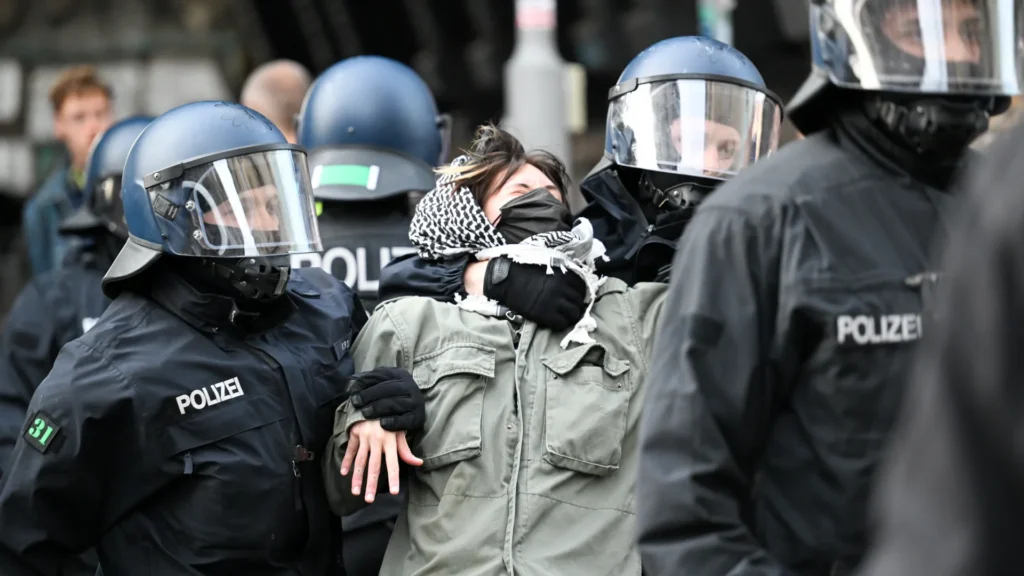A pro-Palestinian protest camp situated near the German chancellor’s office in Berlin was dismantled by police, sparking criticism from activists who claimed the move infringed on their democratic rights.
The protest had drawn considerable attention in recent days, with demonstrators setting up tents and signage to demand an end to the ongoing war in Gaza and express solidarity with Palestinians. However, the peaceful encampment came to an abrupt end when several hundred police officers arrived and cordoned off the area. The blockade effectively prevented additional participants from joining and limited public access to the protest.
Organizers of the demonstration expressed outrage over the police action. They stated that their protest had been registered and approved through proper legal channels, making the forced dispersal both unnecessary and unlawful in their eyes. Demonstrators inside the cordoned zone reported being completely surrounded and unable to leave or receive support from outside.
Protesters described the atmosphere as tense and stifling, with a heavy police presence silencing what they insisted was a peaceful call for justice. They argued that the protest was not meant to be comfortable or convenient for the authorities but rather to raise awareness and provoke dialogue. According to them, discomfort is inherent to the nature of civil resistance.
Law enforcement officials reportedly justified their actions by claiming the protest was disruptive to the functioning of the chancellor’s office. However, demonstrators dismissed this explanation, arguing that protests are by definition intended to disrupt the status quo, especially when addressing humanitarian crises.
The protesters accused authorities of overreach and suppressing free speech. Many viewed the dismantling as part of a broader crackdown on pro-Palestinian sentiment across parts of Europe, where demonstrations have faced increasing scrutiny and restrictions in recent months.
Following the dispersal, organizers vowed to continue their efforts. Plans are already in place to relocate the demonstration to Washington Square, a public space located near Berlin’s central train station. The move aims to maintain visibility while avoiding further confrontation with authorities near government offices.
The incident adds to a growing debate in Germany about how far the state can go in regulating protests, especially those linked to sensitive geopolitical issues. While German officials have consistently defended Israel’s right to self-defense and condemned Hamas, critics argue that this stance has led to an imbalance in public discourse, with expressions of solidarity with Palestinians being disproportionately targeted.
Activists say they will not be silenced and insist that peaceful protest is a cornerstone of democratic society. They believe that silencing dissent not only weakens democracy but also diverts attention from the humanitarian crisis they aim to highlight. As the conflict in Gaza continues, they assert, so too will their demonstrations — regardless of location or resistance.
The dismantling of the Berlin protest camp serves as a flashpoint in the ongoing struggle between civic activism and state control in the context of global political tensions.

